A block is placed on an inclined plane. The block is moving towards right horizontal with an acceleration a0=g. The length of the inclined plane (AC) is equal to 1 m. Whole the situation are shown in the figure. Assume that all the surfaces are frictionless. The time taken by the block to reach from C to A is (Take,g=10m/s2)
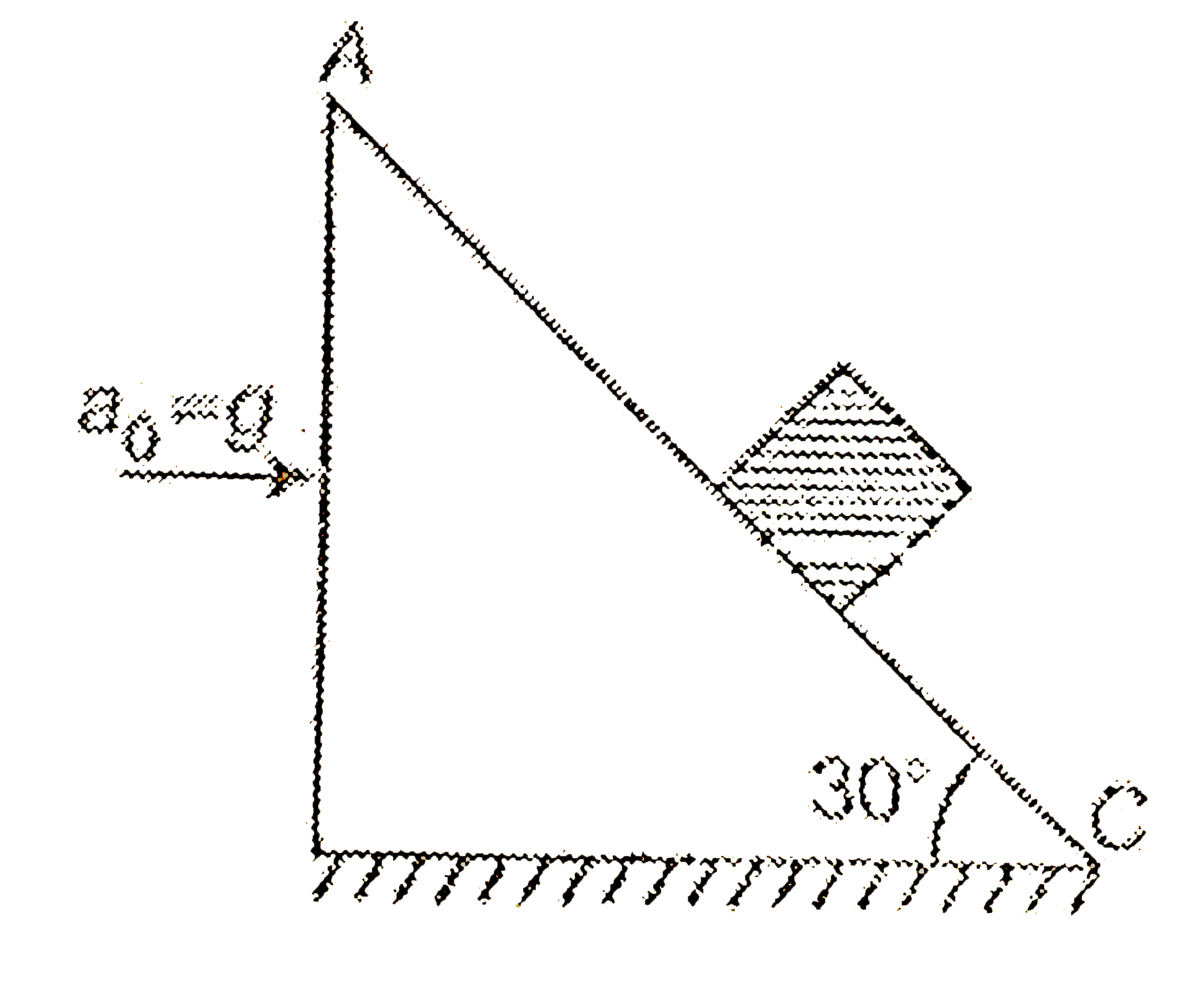
0.74 s
0.9 s
0.52 s
1.24 s
The correct Answer is:A
The forces on smaller block is given as
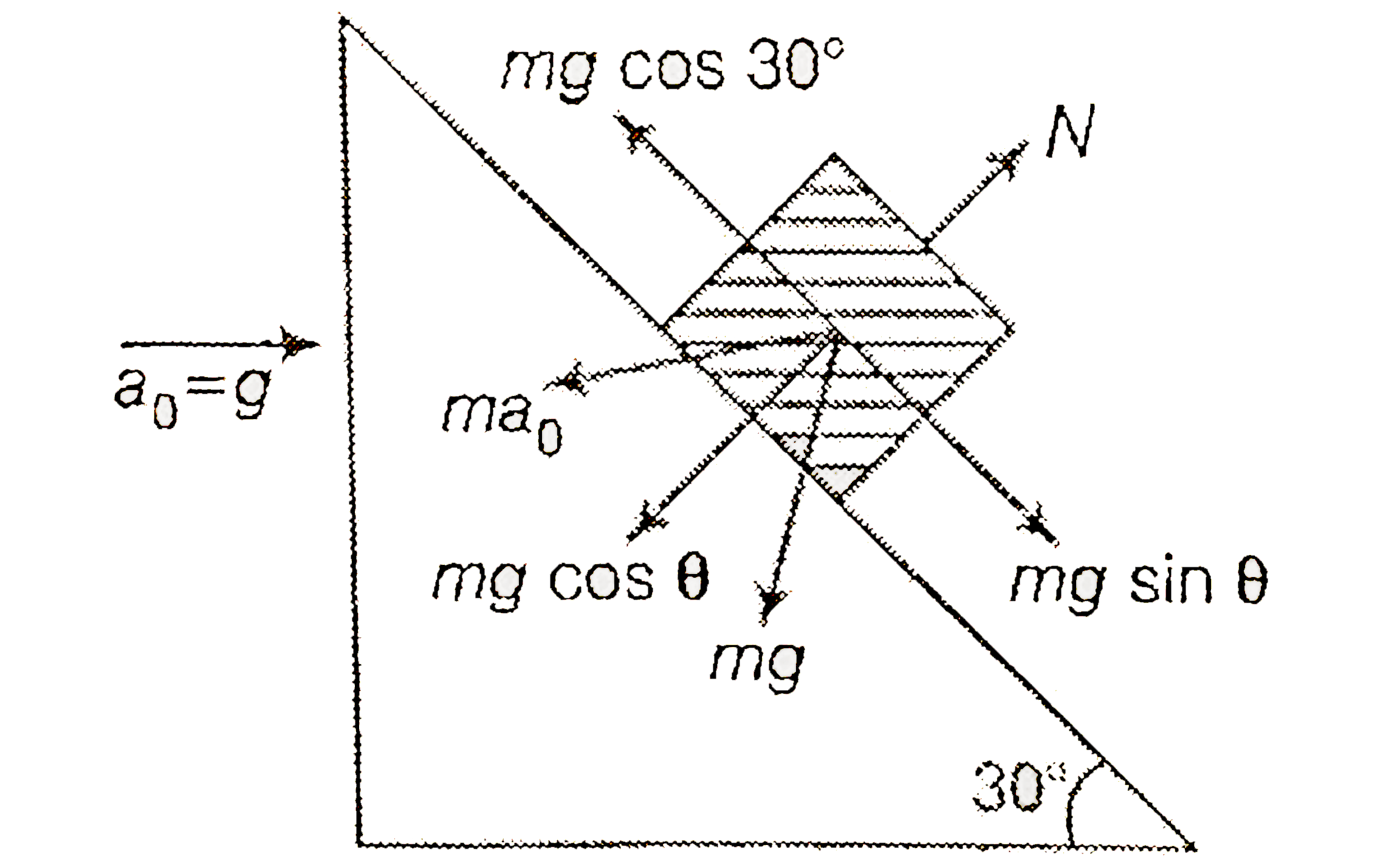
For the motion of the block along the incline plane in upward direction.
Net force on the block = mass × acceleration of the block
⇒ mgcos30∘−mgsin30∘=ma [∵a0=g]
⇒ a=(√3−12)g=3.66m/s2
Now, from equation of motion s = 12at2
⇒ t=√2sa=√2×13.66=0.74s
Topper's Solved these Questions
- NEWTONS LAWS OF MOTION AND FRICTIONBOOK - BITSAT GUIDECHAPTER - NEWTONS LAWS OF MOTION AND FRICTIONEXERCISE - BITSAT Archives
23 Videos
- MOTION IN !,2,2 DIMENSIONS AND POJECTILE MOTIONBOOK - BITSAT GUIDECHAPTER - MOTION IN !,2,2 DIMENSIONS AND POJECTILE MOTIONEXERCISE - All Questions
86 Videos
- ROTATIONAL MOTIONBOOK - BITSAT GUIDECHAPTER - ROTATIONAL MOTIONEXERCISE - BITSAT Archives
9 Videos
Similar Questions
A block is placed on an inclined plane moving towards right with an acceleration a0=g The length of the inclined plane is l0. All the surfaces are smooth Find the time taken by the block to reach from bottom to top.
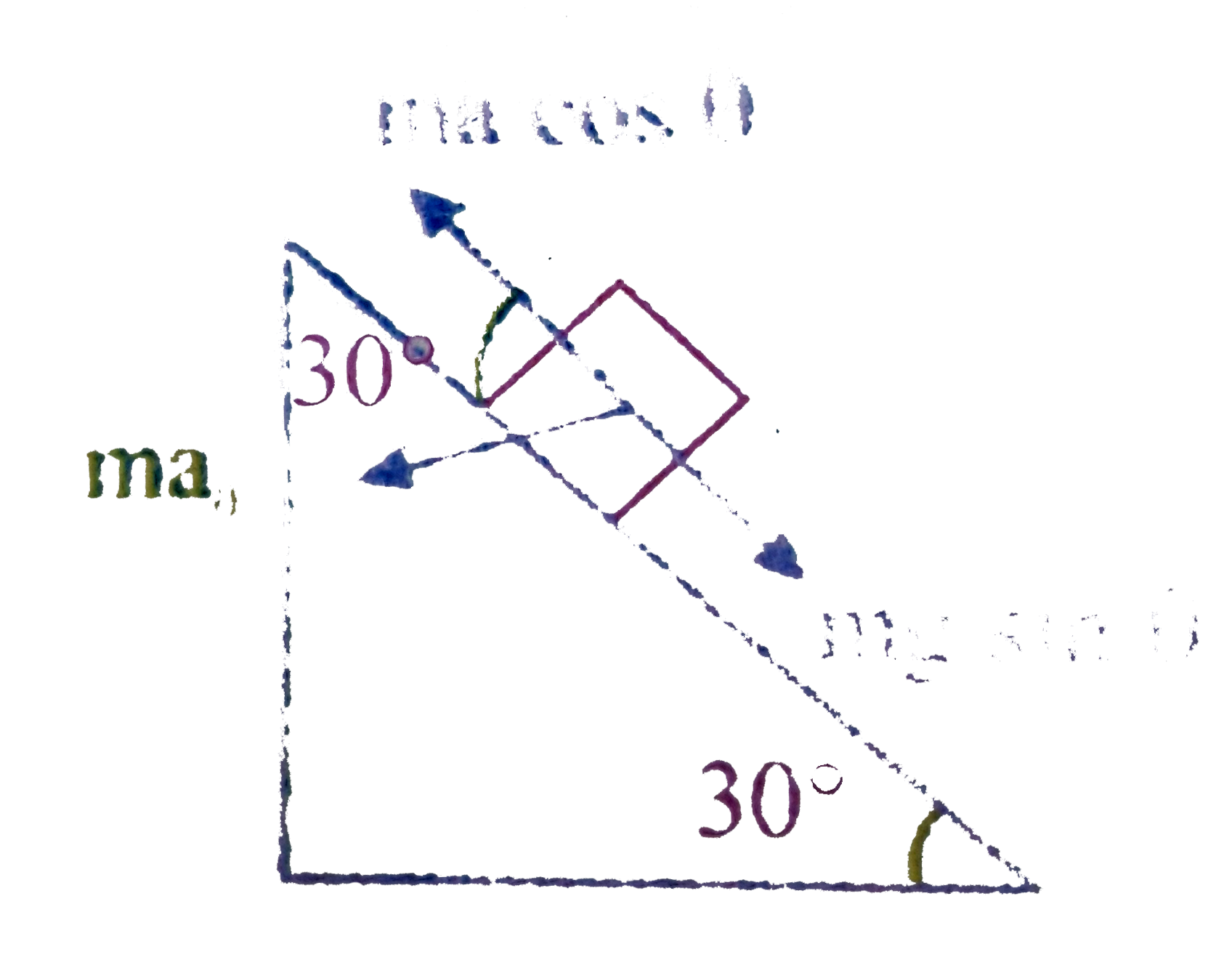 .
.
View SolutionA block is placed on an inclined plane moving towards right horizontally with an acceleration a0=g. The length of the plane AC=1m. Friction is absent everywhere. Find the time taken (in seconds) by the block to reach from C to A.
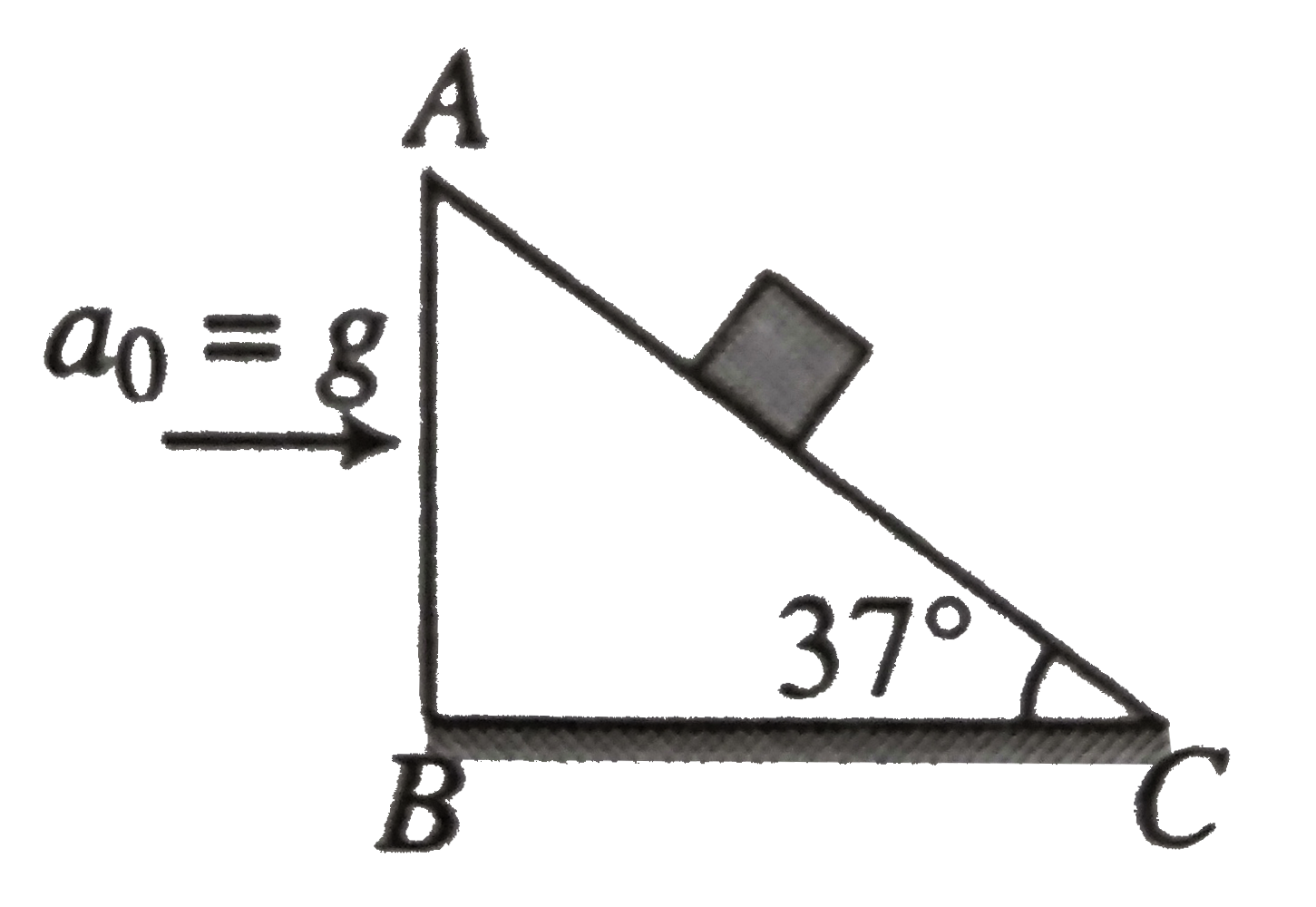
View Solution
Knowledge Check
A block is placed on an inclined plane. The block is moving towards right horizontal with an acceleration a0=g. The length of the inclined plane (AC) is equal to 1 m. Whole the situation are shown in the figure. Assume that all the surfaces are frictionless. The time taken by the block to reach from C to A is (Take,g=10m/s2)
 A0.74 sB0.9 sC0.52 sD1.24 s
A0.74 sB0.9 sC0.52 sD1.24 sA block is placed on an inclined plane moving towards right horizontally with an acceleration a0=g. The length of the plane AC = 1m. Friction is absent everywhere. The time taken by the block to reach from C to A is : (g=10m/s2)
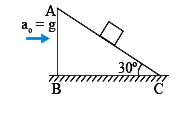 A1.2sB0.74 sC2.56 sD0.42 s
A1.2sB0.74 sC2.56 sD0.42 sA block of mass m is placed on an inclined plane. With what acceleration A towards right should the system move on a horizontal surface so that m does not slide on the surface of inclined plane? Also calculate the force supplied by wedge on the block. Assume all surfaces are smooth.
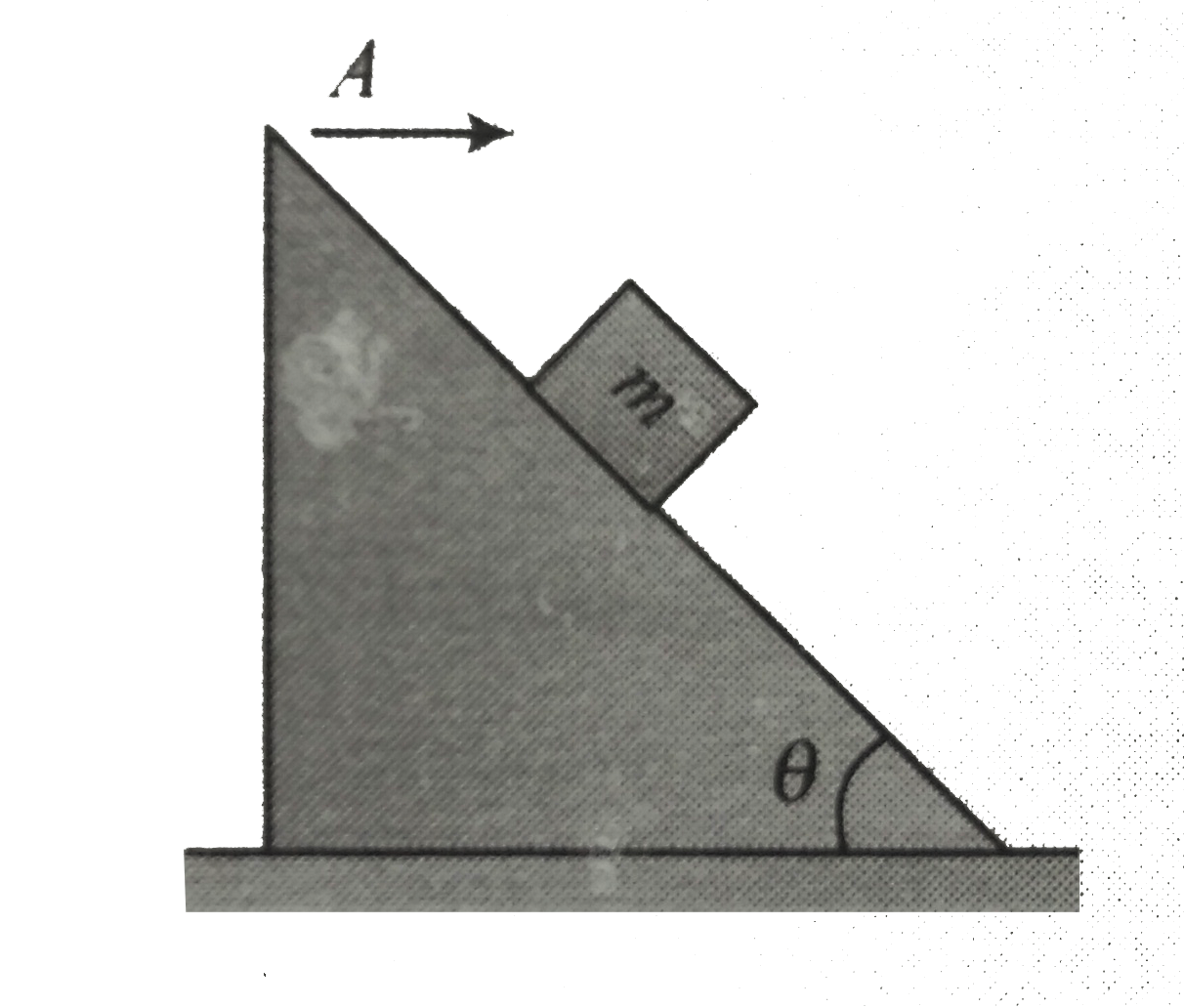 Aa=g(tanθ) , N=mgcosθBa=g(sinθ) , N=gcosθCa=−g(tanθ) , N=2mgcosθDa=−g(tanθ) , N=3mg2cosθ
Aa=g(tanθ) , N=mgcosθBa=g(sinθ) , N=gcosθCa=−g(tanθ) , N=2mgcosθDa=−g(tanθ) , N=3mg2cosθ
A block slides down from top of a smooth inclined plane of elevation ● fixed in an elevator going up with an acceleration a0 The base of incline hs length L Find the time taken by the block to reach the bottom
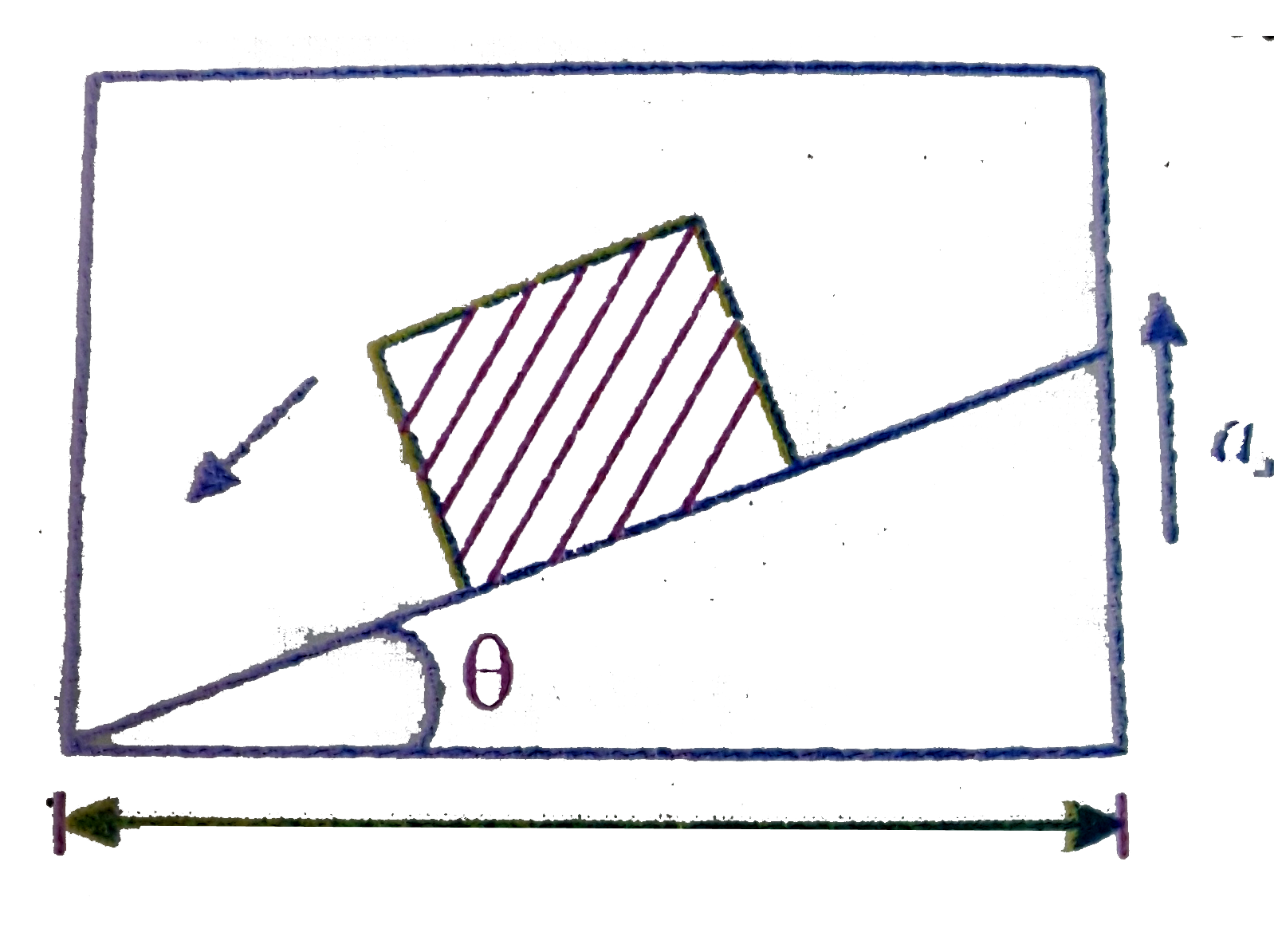 .
.
View SolutionA block of mass m is placed on an inclined plane which is moving with constant velocity v in horizontal direction as shown in figure. Then find out work done by the friction in time t if the block is at rest with respect to the incline plane.
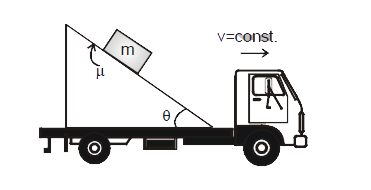
View SolutionInclined plane is moved towards right with an acceleration of 5ms−2 as shown in figure. Find force in newton which block of mass 5 kg exerts on the incline plane. ( All surface are smooth)
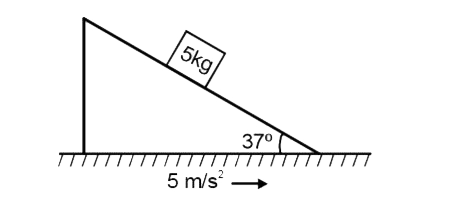
View SolutionA block of mass 10 kg is released on rough incline plane. Block start descending with acceleration 2m/s2. Kinetic friction force acting on block is (take g=10m/s2)
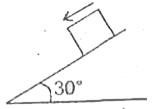
View SolutionA body of mass m is placed over a smooth inclined plane of inclination θ, which is placed over a lift which is moving up with an acceleration a0 . Base length of the inclined plane is L. Calculate the velocity of the block with respect to lift at the bottom, if it is allowed to slide down from the top of the plane from rest :-
View Solution
